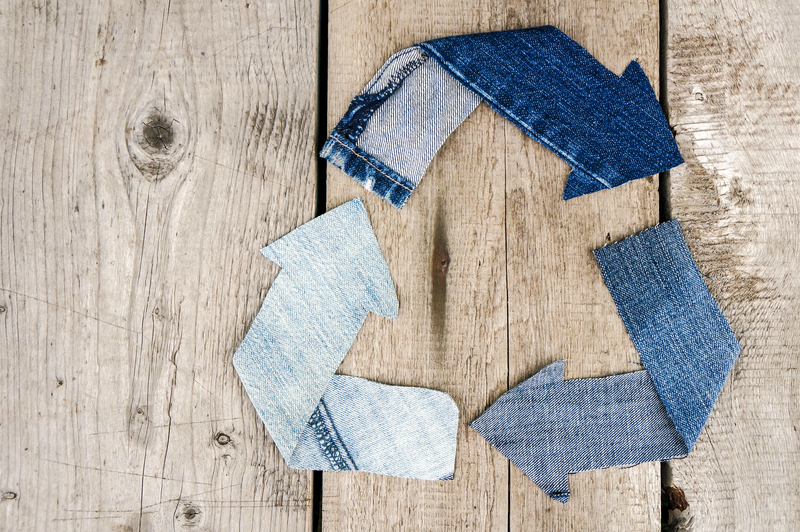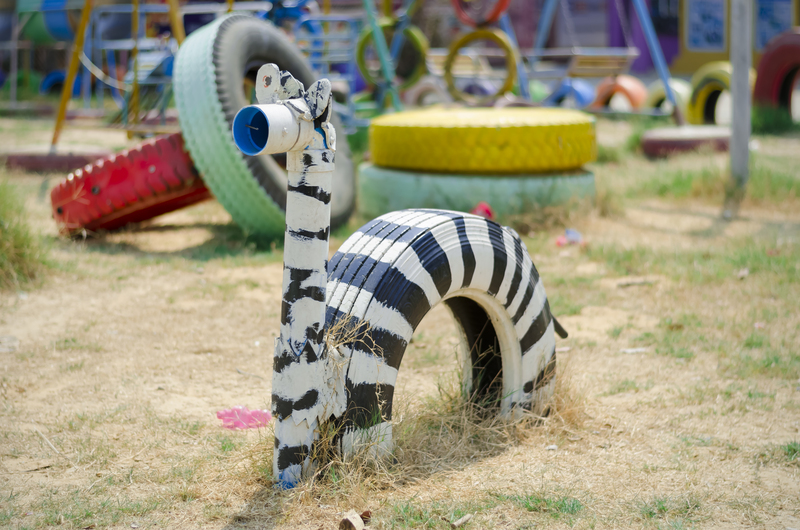Limiting Pollution Through Thoughtful PPE Waste Management
The global battle against pollution has entered a new frontier--managing personal protective equipment (PPE) waste. From medical masks to latex gloves, PPE has become a daily necessity. However, its improper disposal presents significant environmental hazards. This comprehensive guide explores how thoughtful PPE waste management is vital in limiting pollution and safeguarding our planet's wellbeing.

Understanding the Impact of PPE Waste on the Environment
Personal Protective Equipment was designed to save lives, but ironically, it's endangering the environment. Since the COVID-19 pandemic, global PPE use has soared, resulting in an estimated 129 billion face masks and 65 billion gloves used each month (according to the journal Environmental Science & Technology).
The Environmental Toll of PPE Pollution
- Non-biodegradable Materials: Most masks and gloves are made from plastics like polypropylene that can take centuries to decompose.
- Microplastics Production: When exposed to sunlight and erosion, PPE items break down into microplastics, which enter ecosystems and food chains.
- Wildlife Hazards: Animals can mistake PPE for food or become entangled, leading to injuries and death.
- Soil and Water Contamination: Toxins and plastic particles can leach into soil and waterways, harming vegetation and aquatic life.
The above points underscore why effective PPE waste management is essential for limiting pollution and protecting biodiversity.
Why PPE Waste Is a Growing Concern
Traditional waste management systems were never designed to handle the sudden surge of single-use medical PPE. The result? Overflows in landfills, littering in public spaces, and contamination risks in both urban and rural environments. Regulatory frameworks are struggling to keep up, making the adoption of thoughtful PPE waste disposal practices more important than ever.
Methods for Limiting Pollution Through Thoughtful PPE Waste Management
Segregation and Collection of PPE Waste
- Dedicated PPE Waste Bins: Use color-coded, clearly marked bins in hospitals, workplaces, and public spaces for mask and glove disposals.
- Separation at Source: Train cleaning staff and the general public to not mix PPE waste with regular trash or recyclables.
- Regular Collection: Ensure frequent removal of PPE waste to minimize overflows and unauthorized rummaging, which can lead to environmental contamination.
Safe Disposal Techniques for PPE
Disposing of PPE thoughtfully prevents pollutants from entering natural systems:
- Incineration: High-temperature incineration destroys pathogens and reduces waste volume, but must be done in facilities with proper emission controls to avoid releasing toxins into the air.
- Autoclaving: Steam sterilization of PPE waste before landfill placement lowers infection risks. Some materials can be recycled afterward.
- Engineered Landfills: Use sanitary landfills with linings to contain contaminants and prevent soil or groundwater pollution.
Recycling and Reusing PPE Materials
- Material Recovery: Some laboratories and startups are pioneering PPE recycling to convert used items into construction materials, benches, or fuel.
- Innovative Reuse: Textile researchers are developing washable and reusable PPE alternatives with less environmental impact.
- Downcycling: Transforming PPE into secondary products (e.g., insulation materials, plastic lumber) can reduce landfill loads.
Public Education: The Key to Thoughtful PPE Waste Management
Personal responsibility and public education are crucial to limiting PPE pollution:
- Awareness Campaigns: Inform people about the correct ways to dispose of PPE and the environmental consequences of littering.
- Clear Signage: Use illustrated posters and digital announcements in public spaces to guide citizens.
- Community Engagement: Organize clean-up drives and PPE collection points, especially near hospitals, parks, and public transport.
Global Initiatives Showcasing Successful PPE Waste Management
Countries Leading the Way
- Singapore: Introduced strict fines for PPE littering and rapid deployment of dedicated bins citywide. Partnerships with recycling firms turn used masks into energy.
- United Kingdom: The NHS piloted PPE recycling programs in several hospitals, turning face shields and visors into plastic pellets for new products.
- India: Innovators in Mumbai are collecting disposable masks from COVID-19 hotspots and incorporating the shredded material into road surfaces--an approach that both limits pollution and repurposes waste.
Private Sector Contributions
Several companies have stepped up with eco-friendly PPE waste management solutions:
- TerraCycle: Their Zero Waste Boxes offer workplaces and healthcare facilities a way to collect and recycle PPE efficiently.
- Renew ELP (UK): Utilizes chemical recycling to break down plastic-based PPE waste into reusable oil and chemical feedstock.
Challenges Facing Thoughtful PPE Waste Management
Despite these advances, several challenges remain on the road to sustainable PPE disposal:
- Volume and Logistics: The sheer scale of discarded PPE can overwhelm municipal waste systems, especially in densely populated regions.
- Cost Constraints: Specialized handling and recycling processes are often more expensive than traditional disposal, limiting accessibility in low-resource settings.
- Health & Safety Risks: Improper handling of contaminated PPE poses dangers to waste workers and can perpetuate outbreaks.
- Public Compliance: Not everyone follows disposal guidelines, complicating the effectiveness of even the most well-designed systems.
Technological Innovations in PPE Waste Management
Advances in Biodegradable PPE
A promising area is the development of biodegradable PPE made from materials like polylactic acid or bamboo fiber. These break down faster without leaving harmful residues, lowering the environmental footprint.
Smart Waste Bins and Tracking
- Sensors: Detection of PPE items in bins triggers alerts for timely collection, preventing overflows.
- Data Analytics: Monitoring disposal patterns helps governments target problem areas and optimize resources.
Automated Sorting and Sterilization
Robotics and AI-powered sorting facilities can safely separate PPE from mixed waste, reducing manual labor and boosting recycling rates. Combined with on-site sterilization units, this ensures both safety and sustainability.
Guidelines for Thoughtful PPE Waste Disposal in Daily Life
Every individual can make a difference by adopting safe and environmentally conscious PPE waste management practices:
- Do not litter: Always dispose of masks and gloves in designated bins.
- Cut mask straps: To protect wildlife, snip the ear loops before disposal.
- Store separately: Keep a special bag for used PPE until you can throw it away responsibly.
- Opt for reusable PPE: Where appropriate and safe, choose washable masks instead of single-use ones.
- Follow local guidelines: Adhere to municipal rules on PPE waste handling, especially during outbreaks.
Regulatory and Policy Measures to Limit PPE Pollution
Government action is pivotal for the widespread adoption of thoughtful PPE waste management:
- Standardized labeling: Mandate clear symbols and disposal instructions on all PPE packaging.
- Producer responsibility: Encourage or require manufacturers to collect and recycle post-consumer PPE products.
- Incentivize innovation: Provide tax breaks or grants for companies designing eco-friendly PPE and advanced recycling solutions.
- Enforce penalties: Impose fines on individuals and organizations that improperly dispose of PPE.

The Importance of Collaboration in PPE Waste Reduction
Limiting pollution from PPE waste is not a task for one group alone. It requires a concerted effort from:
- Governments for creating and enforcing regulations
- Healthcare providers for training and monitoring staff
- Corporate organizations for providing facilities and education
- Citizens for maintaining personal responsibility and public health
Together, they can build robust systems that ensure thoughtful PPE waste management is the norm, not the exception.
Conclusion: The Future of PPE Waste Management and Pollution Control
As our reliance on PPE grows, so does our responsibility to dispose of it thoughtfully. Limiting pollution through mindful PPE waste management is essential, not just for today--but for future generations. With advances in policy, technology, and public behavior, the journey toward a cleaner, safer world is well within reach.
Act intelligently. Dispose responsibly. Help limit pollution with thoughtful PPE waste management for a sustainable tomorrow.
